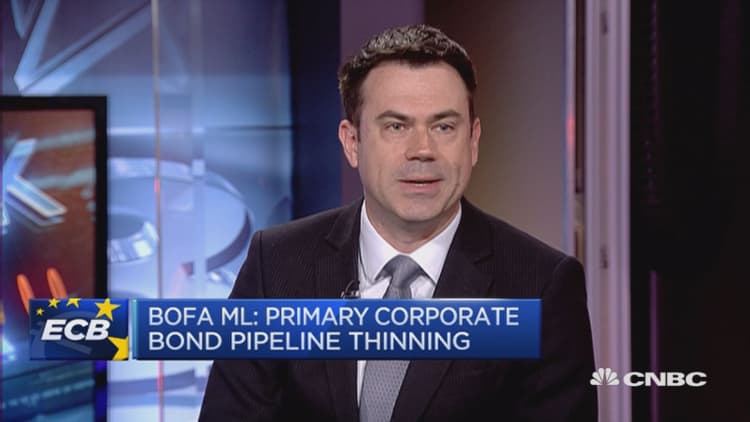Lenders in Europe and Japan are rebelling against their central banks' negative interest rate policies, with one big German group going so far as to weigh storing excess deposits in vaults.
The move by Commerzbank to consider stashing cash in costly deposit boxes instead of keeping it with the European Central Bank came at the same time as Tokyo's biggest financial group warned it was poised to quit the 22-member club of primary dealers for Japanese sovereign debt.
The ECB and the Bank of Japan have for months imposed negative rates for holding bank deposits in an attempt to push lenders to deploy their cash in the real economy through more aggressive lending to businesses. The policy in effect taxes banks for storing excess liquidity.


The central bank policies have hit bank profitability in both regions and German banks have been vocal in criticizing Mario Draghi, ECB president, accusing him of punishing savers and undermining their business models. The policy cost German banks €248 m last year, according to the Bundesbank.
Japanese banks have been more muted but Bank of Tokyo Mitsubishi UFJ has become the first leading lender to break ranks, confirming it is considering giving up its primary dealership status for sales of Japanese government bonds.
Negative rates have hammered share prices. Japan's Topix bank index is down 28 per cent this year and the Euro Stoxx Banks index is 21 per cent lower.
More from the Financial Times :
Goldman sells Japan negative yield bonds
Alarm bells ring over negative rates
Negative yields cost investors $24 billion
Commerzbank said it was not yet storing cash in vaults and added that "we have not decided to do so". However, two people briefed on the bank's thinking said the lender had been considering such a step.
The bank is not alone. Some savings banks in Bavaria have also explored storing physical cash and Nikolaus von Bomhard, chief executive of Munich Re, said this year that the reinsurer would experiment with holding at least €10 million of its reserves in cash to see whether or not it was practical.
Commerzbank said it was not yet storing cash in vaults and added that "we have not decided to do so". However, two people briefed on the bank's thinking said the lender had been considering such a step.
The bank is not alone. Some savings banks in Bavaria have also explored storing physical cash and Nikolaus von Bomhard, chief executive of Munich Re, said this year that the reinsurer would experiment with holding at least €10 million of its reserves in cash to see whether or not it was practical.

The viability of the approach is open to debate. Holding cash in vaults would incur storage and insurance fees. The ECB's decision to stop producing the €500 note will also make storing large volumes more difficult. But Adalbert Winkler, professor at the Frankfurt School of Finance and Management, said that if the ECB kept its negative deposit rate in place for a prolonged period, or increased it, more banks might decide to hold cash.
"The more central banks think that they can violate the zero-bound, the more likely it is that banks will look at ways to limit their costs," he said. "And that means they will hold more cash if they can find efficient means to do so."
To carry out the plan, which was first reported by Reuters, Commerzbank would need to access cash through the Bundesbank, which is where its reserves are held. The German central bank declined to comment.

